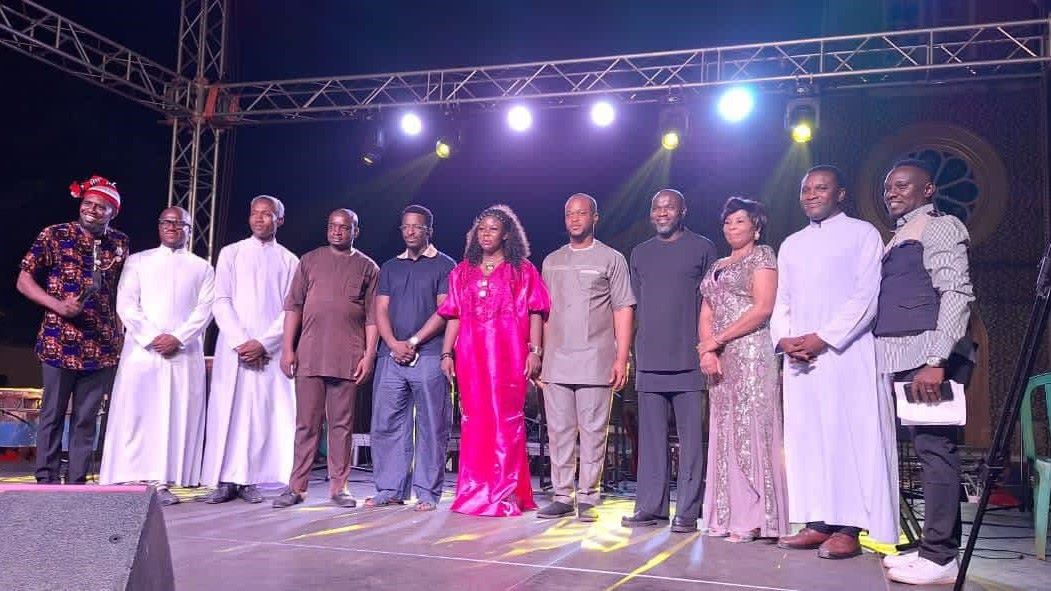
OTUOKE, meaning Oke Family (Otu is family in Ogbia language, while Oke is name), occupies a small, but strategic position in Ogbia Kingdom. It is one of the few towns that a tourist can go to by road and on water.
The town is made up of three major families, namely: Emom, Akatim and Akiniama. But it is also divided into seven political compounds —Asuka, Ebele, Eluan, Apolo Tama, Apolo Ogbo, Okporein and Obebhegbolom.
From a small, impoverished community sitting on the road to Yenagoa, it has really changed into a busy town. It is one of the towns that make up Ogbia, sometimes, referred to as Ogbinya, which numbers a little over 266,000, according to the 2006 census.
With the revocation of the chatter of the Royal Niger Company and the establishment of the British Rule in Nigeria in 1900, the British ventured into Ogbia Kingdom, and Oloibiri was made the seat of government.
The first thing the colonial government did was to recognise some warrant chiefs such as, Apata Amangala, Chief Amakaro Onwiga and Chief Obonin. Subsequently, three customary courts were established at Oloibiri (1929), Emeyal (1936) and Amyama (1937). Later, these three courts were recognised as clan centres.
Oloibiri clan consists of Oloibiri, Otuabo, Otnogidi, Otuabi, Otakeme, Otabagi, Otmegila, Opume, Emakalakala, Akipelai, Idema, Oturabala I, Oturabala II, Ewoi, Otuaba, Otuoke and Idema.
The Guardian gathered that after a meeting of communities in Ogbia, it was resolved that Otuoke should be made the centre. It was gathered that as a result of politics and perceived jealousy, some elders and high networth children of the kingdom, which included a former governor of Rivers State, decided that Otuoke should not be made the headquarters, instead, a new town should be developed from the scratch called Ogbia.
Initially, houses were built with mud and roofed with raffia until some people began to use the corrugated sheets. As a matter of fact, the then high chief, Obanema (king), was resident in Otuoke as agreed by the entire Ogbia kingdom. He began the development with construction of the first road into the community, which today, is known as Ebele Street. Otuoke is the only community that is connected by road and water in the kingdom; this was why the entire Ogbia community agreed that it be made the centre. However, the new town that emerged was called Ogbia, which was built from the scratch by the Ogbia Brotherhood in 1972, as ‘a centre to unify all Ogbia people’.
The Ogbia language isn’t a dialect of Ijaw, as many people believe. In other words, President Jonathan is not of Ijaw stock.
Traditionally, Ogbia men are palm cutters, while their women are subsistence farmers. Fishing is not a major occupation of the men. The belief of the Ogbia man about the creator is that the Almighty God created the kingdom. This is the reason for the kingdom not having a national deity.
Since the Ogbia do not have a national deity, they have no common festival. However, the Odinade group celebrates the Eyala Otudul, signifying the desertion of Ebela kingdom, and also, Eyal Odemi by Otuoke at Iyiakpokizo, which is celebrated to show unity in the kingdom.
Like other places, Ogbia kingdom had similar beliefs about bush and water spirits. Generally, in Ogbia, people do not go to bush every fourth day called Ake. It is believed that spirit like Egbafido moves about on that day. This belief started at Ebela bush where the deserted Ebala kingdom stationed. On that day, the dead people of the kingdom emerged to plant about. However, such beliefs are gradually dying because of the rapid spread of Christianity.






